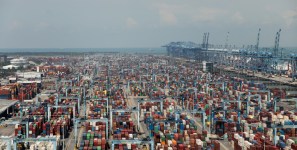Critical Skills for the Future Workforce
If you conduct a search for critical future workforce skills, words like “resilience,” “adaptability,” and “critical thinking” will undoubtedly appear pretty high in your results. Not so surprising, given the year we’ve collectively just endured and the level of uncertainty that doesn’t appear to be abating any time too soon.
Advancements in technology, robotics, and automation were quickly driving us toward significant workforce change and a need to upskill or reskill teams even before the global pandemic put more pressure on the gas. Now, many of those skills require nuanced approaches as we embrace more remote work, distributed teams and virtual connectivity – and terms like “liquid” are being used to describe the blurred lines in what the workforce of the future will look like.
The good news is that global mobility professionals are well equipped with the right blend of skills and knowledge to meet the changing needs. Because mobility sits at the intersection of talent acquisition and retention, compensation and benefits, tax and immigration, payroll and other HR functional areas, the role has become increasingly critical to business success.
Resilience
As 2020 clearly demonstrated, mobility requires agile practitioners who can guide the company as the workforce environment rapidly evolves, helping organizations respond immediately to emergencies, recover, and then reimagine business to stay relevant. Corporations have met the challenges imposed by COVID-19 in a variety of ways, encouraging flexibility when it comes to the employee base. We’re seeing far more attention paid to the personal situation of individual employees and a greater willingness to allow different approaches to achieving harmony between work and personal life.
While many relocations or cross-border assignments may still be on hold in the current environment, the surge in remote work has opened up talent pools, making it possible for companies to move jobs to people. GM teams have the big-picture view about what talent and skills are available, in what locations, and where there may be gaps that can be creatively filled.
Initiative
Mobility houses a level of expertise in many crucial areas, including tax and immigration, and can act as a hub of information on these subjects. This helps streamline processes and provides the organization with the tools and insights to make smart decisions with respect to employee work location requests as well as meeting company plans for growth. Knowing the actual work location of every employee adds complexity to the job while highlighting the need for full awareness of any potential consequences.
As one GM professional put it – many functions, including some of those in broader HR, operate in the more traditional, “black and white” space. Mobility professionals are problem-solvers and critical thinkers who are comfortable working in some of what might be called “gray” areas to find solutions. Greater levels of cross-collaboration and learning between mobility and other core functions of the business, including talent acquisition and reward, will help position organizations to be ready to meet future challenges and staffing needs.
DEI Support
Another benefit of a broader talent pool is that mobility can be a powerful tool to help foster greater diversity, equity and inclusion. We’re beginning to see a heightened focus on holistic skill sets as opposed to just one’s previous job positions or titles, which can open the door to building a more diverse global workforce. Mobility can be instrumental in executing a leadership talent plan that ensures cultural awareness is a top priority, too. International assignments can be strong talent acquisition and development tools, and help pave the way to success in a global marketplace.
Technical Expertise and Analysis
Mobility uses technology in multiple ways, including tracking and reporting on global employees, helping to manage program spend and finding ways to reduce costs, and speeding communication throughout the organization. As the tools and skillsets continue to evolve, predictive analytics will continue to play an important role in helping the business understand which individuals might be best suited for assignment success and why.
Mobility uses data to present a compelling story. Gaining greater comfort levels with statistics is critical as a more evidenced-based approach is becoming increasingly important when making business decisions and demonstrating the ROI of an assignment. While understanding the numbers is vital, integrating the human element to the discussion is a significant advantage mobility can provide to conversations about policy, process or procedures. Consistent administration and delivery of HR benefits to the employee population – including mobility – has been a guiding principle for corporations, and although the pandemic has altered this approach to some extent, it remains important to analyze decisions in terms of setting precedence while maintaining equity.
The critical skills needed for the future blend the technical, people, empathy and communication arenas, and talent mobility professionals bring a healthy mix of all of them to the table.
________________________________________________________________
Leah Johnson is Sterling Lexicon’s Director, Client Solutions, and has worked in the global mobility industry for more than 20 years. She has held management positions in business development, operations, account management, and consulting, and had the opportunity to live and work in Tokyo and Hong Kong for six years. She initiated destination services in Hong Kong for a relocation management company and directed global mobility for Goldman Sachs in the APAC region. She graduated from Colgate University, earned an MBA from the University of Alabama in Huntsville, and maintains a Senior Certified Professional (SCP) certification from SHRM.





Leave a Reply